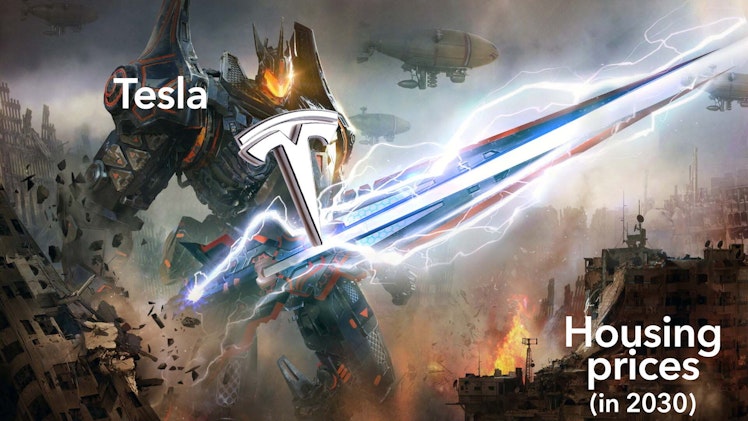Trending Assets
Top investors this month
Trending Assets
Top investors this month
Second Order Effects of Autonomous Vehicles
The market does a great job of pricing in first-order effects. But there is often money to be made (or risks to be avoided) in connecting the dots to the second-order effects. Walk with me.
Let's say Tesla is successful in creating autonomous vehicles. What are the first-order effects?
=> People don't have to spend time driving
=> Tesla stock goes up
=> You are inspired to add your own first-order effect in the comments⬇
Ok but what are the _second order effects? Y_ou know, the things that will happen that busy people don't have time to think about.
Housing prices will plummet.
("What? Why?")
Here's the logic:
Your car spends 95% of it's time sitting in a parking spot doing nothing.
If Tesla is successful in developing a self-driving car, vehicle ownership will look very different. Most cars on the road will be autonomous taxis. They will drop off a passenger and immediately drive away to pick someone else up. Vehicle utilization rates will go up.
Cars being used more means parking spots will be used less.
That means there will be less need for land for parking. Currently it is estimated that 14% of all the land in LA is dedicated to parking. When cars no longer need that land, the land can be repurposed for other uses.
What is the highest and best use for land?
Housing.
More housing supply means lower housing prices.
You heard it here first: autonomous vehicles = more affordable housing.
Or if you want to state it differently: There is a risk that housing prices will collapse late this decade as society reorganizes to accommodate the second-order effects of self-driving vehicles.
If you're new to the Commonstock community- one thing I love about this corner of the internet is the Thoughtful Pushback. So have at it- let me know why I'm wrong in the comments :)

Bloomberg.com
How Parking Conquered Los Angeles, in 14 Facts, Maps, and Figures
The 14 facts, maps, and figures that explain how 14 percent of Los Angeles County ended up devoted to car storage.
Already have an account?